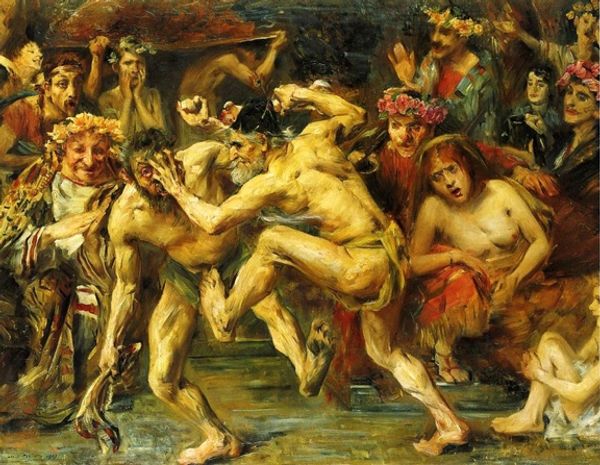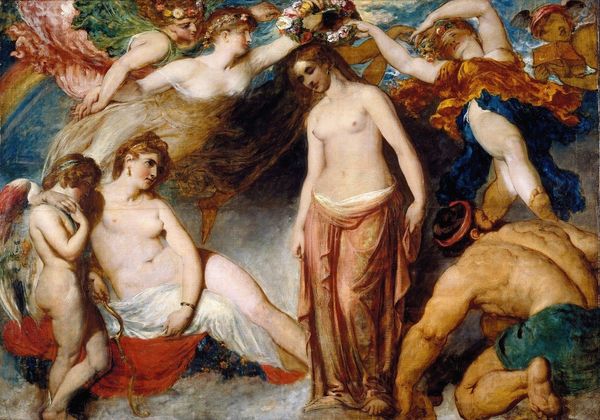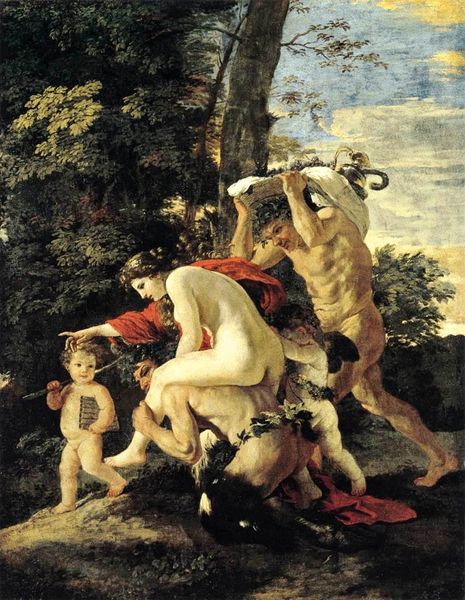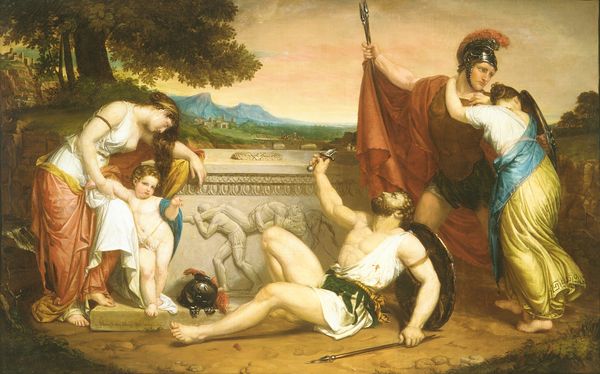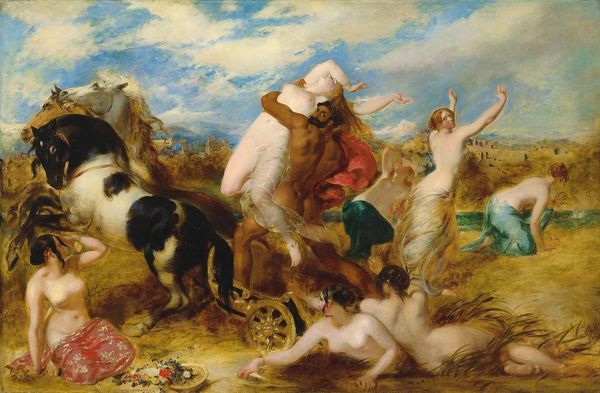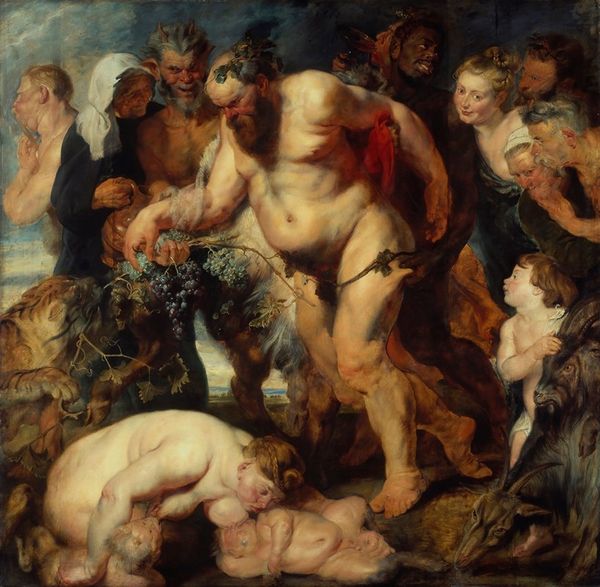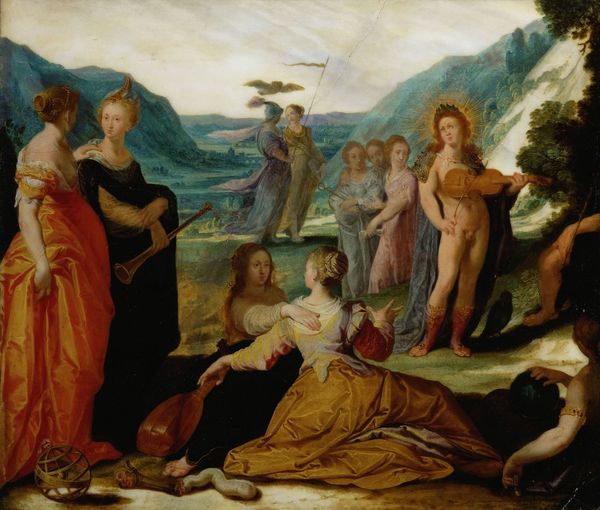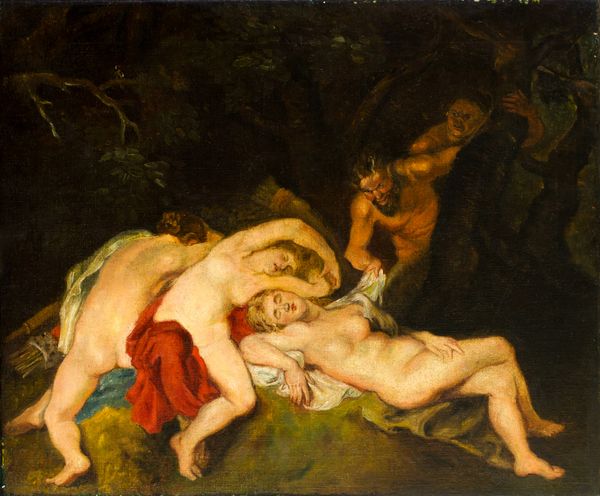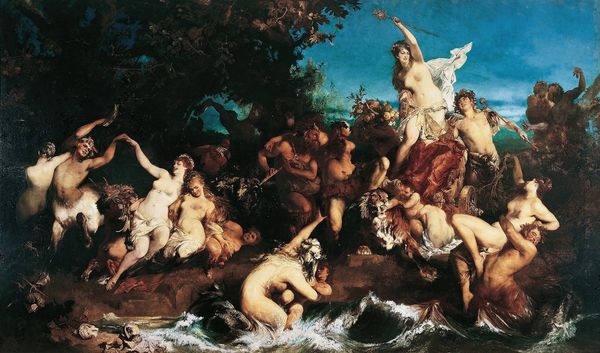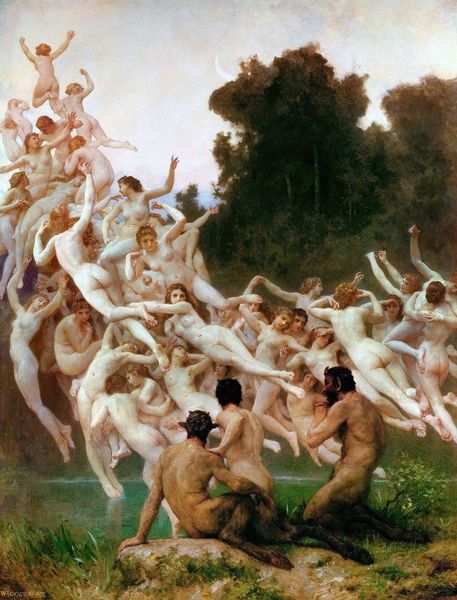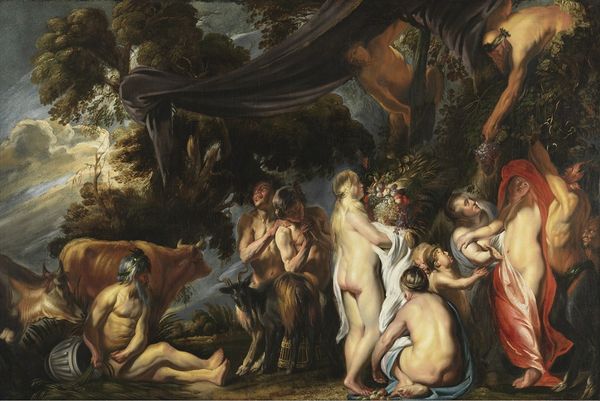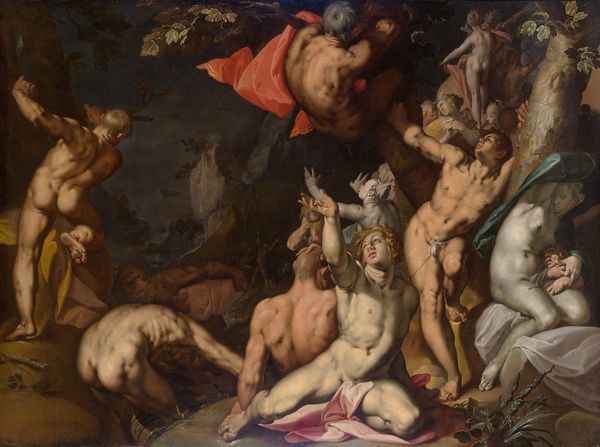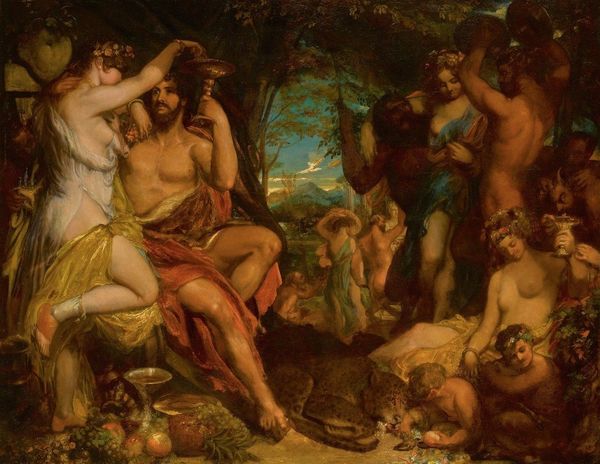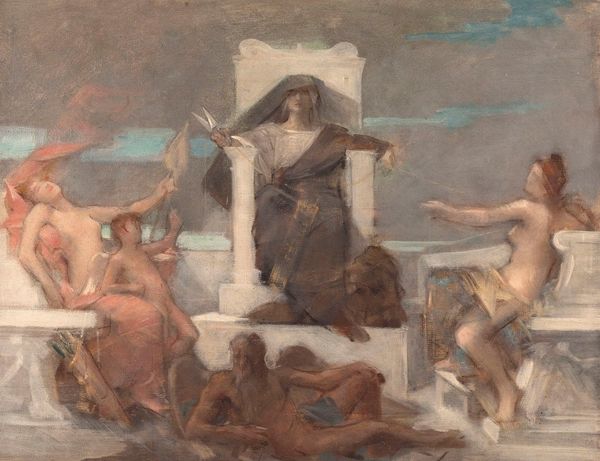
#
acrylic
#
abstract painting
#
negative space
#
possibly oil pastel
#
oil painting
#
neo expressionist
#
acrylic on canvas
#
underpainting
#
mythology
#
painting painterly
#
expressionist
Copyright: Public Domain: Artvee
Editor: This is "Pan Dancing with Children," painted around 1884 by Arnold Böcklin, using what looks like oil paint. It’s quite a dreamy scene, almost unsettling in its innocence. What do you see in this piece, especially given the artist’s background? Curator: It’s important to understand Böcklin as working within a specific historical and cultural milieu. Think about the late 19th century; industrialization was transforming society, and there was a growing sense of alienation. Böcklin, and many artists of his time, looked back to mythological subjects for meaning and escape. Here, we see Pan, a symbol of untamed nature and masculine power, juxtaposed with innocent, almost ethereal children. Editor: So, the contrast between Pan and the children is deliberate? Curator: Precisely. Consider Pan’s traditional association with sexuality and primal instincts. Placing him in the context of childlike innocence and a pastoral setting raises questions about the darker aspects of human nature. Is Böcklin exploring the loss of innocence, perhaps commenting on the corruption of modern society? Also, consider the implications of Pan's traditional depiction of animalistic features versus the children in a racial and colonial context. What ideas might be circulating at that time in regards to human animality and its connection to colonialism? Editor: I never thought about it that way! I was so focused on the dreamlike quality. Curator: That "dreamlike quality," is key! It allows him to subtly engage with complex, even uncomfortable, social and psychological themes. How does the composition reinforce those themes, do you think? Notice the swirling movement, almost a vortex, that pulls the viewer in... Editor: It's almost like a commentary on power dynamics and how societal forces can shape innocence, forcing an uncomfortable awareness. Thanks for expanding my understanding. Curator: Absolutely. Hopefully, exploring the art within its broader social context empowers viewers to challenge assumptions and build richer meaning for themselves.
Comments
No comments
Be the first to comment and join the conversation on the ultimate creative platform.
